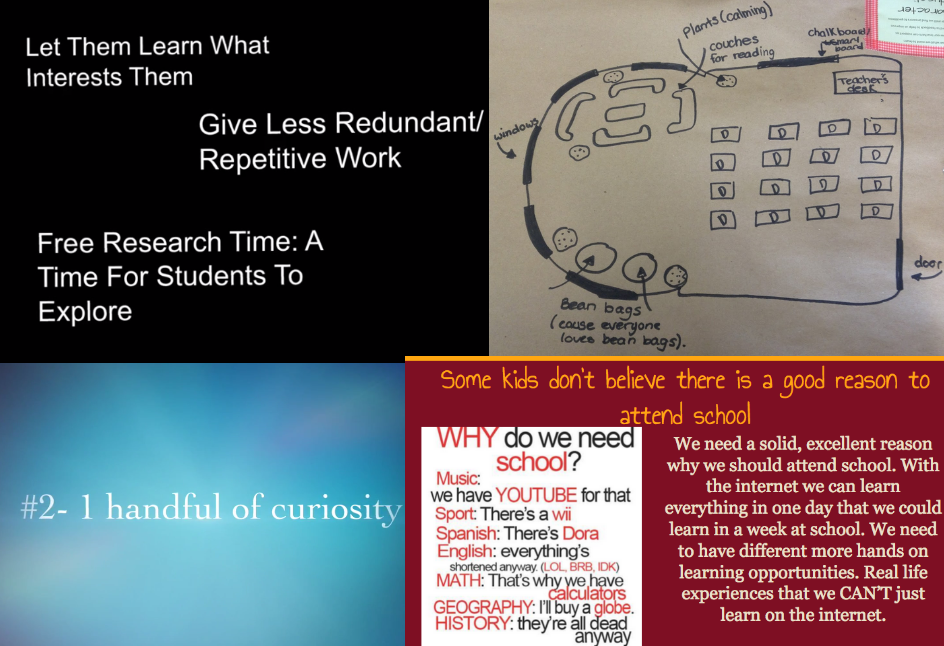Ideas and Action (after the Anger)
I have been reflecting about the power I have to drive positive change in my school board - the ‘action’ part of the #makeschooldifferent conversation. I enjoyed reading @Dunlop_Sue ’s ‘So Now What?’ post that addresses this issue, and thought that I should write explicitly about what I can do to address some of the issues I raised in my original #makeschooldifferent post. Although I am one person, my central role gives me the potential to reach a large number of teachers and students, and I want to make sure I am carrying out my work with purpose. The following is a list of four things that have become important to me in my work with teachers this year. These are things that I have grown passionate about. These are things that I love to discuss and debate with my colleagues. These are the things that I read about in my spare time. These are the things that I want to focus on in the months to come. Professional Learning for the Love of It! One of the frustrations I ha...
